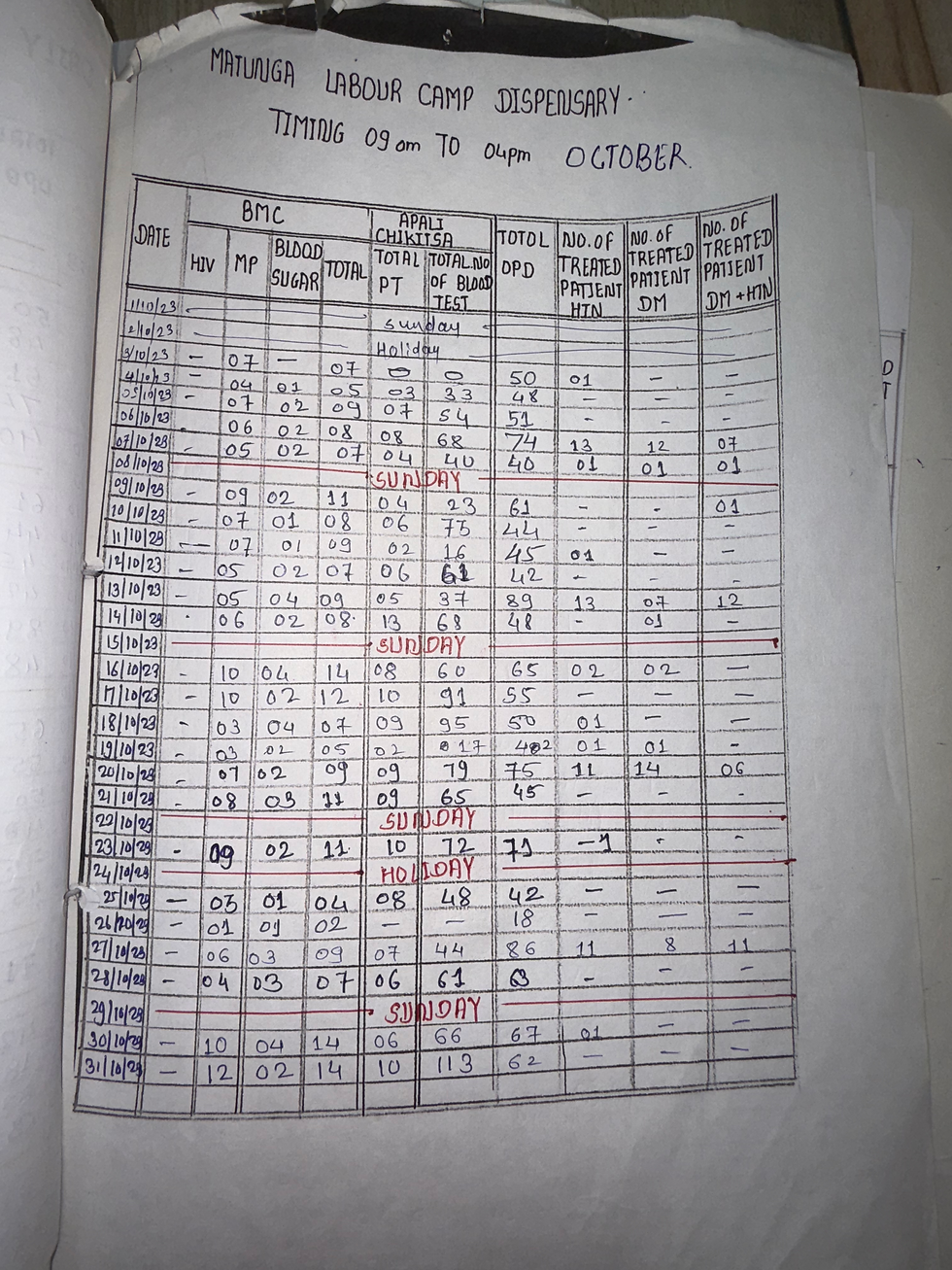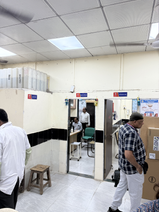Volunteering at APLA Dawakhana Clinics in Dharavi: A Monsoon Rush Like No Other
- armaan chahal
- Jan 9
- 3 min read

When I volunteered at the APLA Dawakhana clinics in Dharavi (August - October 2023), I was thrown into the heart of one of Mumbai’s busiest, most vibrant communities. What started as a simple desire to give back quickly turned into one of the most eye-opening and humbling experiences of my life, especially during the intense monsoon season rush.
The monsoon in Mumbai is notorious for bringing heavy rains, flooded streets, and a surge in health problems. In Dharavi, a densely populated area with limited access to healthcare, the rainy season also brings an overwhelming number of patients seeking treatment. I was right in the middle of it—doing everything I could to help, learning from doctors, nurses, and fellow volunteers, while trying to keep up with the constant stream of patients who needed care.
The Rush of Monsoon
The rain didn’t just bring water—it brought a rush of illnesses. As the streets flooded and people sought shelter, many found themselves with waterborne diseases, viral infections, or respiratory problems. The clinic was always packed, and the pressure on the medical team was enormous. It was an exhausting experience, but it also made me realize just how important places like APLA Dawakhana are in communities like Dharavi.
I was constantly moving, helping patients check in, organizing medical supplies, and assisting wherever I could. Many of the patients lived in cramped, overcrowded conditions where hygiene was a constant struggle. In these moments, even the smallest actions felt meaningful. Whether it was helping a child with a fever get treated quickly, or comforting an elderly woman who seemed scared and confused, it was clear that our work mattered in ways I hadn’t fully appreciated before.
Learning to Bridge Gaps in Healthcare
The true challenge wasn’t just treating diseases; it was addressing the bigger issue of accessibility. Many of the patients I met couldn’t afford private hospitals or even basic medicines. APLA Dawakhana was their only hope, offering affordable treatment and essential healthcare services. During the monsoon season, this was even more critical, as diseases spread rapidly and people needed immediate care.
I spent a lot of time helping patients understand basic health practices—like boiling water to avoid infections, recognizing early symptoms of illness, and when to seek treatment. I realized how important these small pieces of information could be in preventing larger outbreaks, especially in a community where access to health education is often limited.

A Personal Transformation
The experience left me feeling grateful and changed in so many ways. It wasn’t just about the medical tasks or seeing patients—it was the way the whole community came together in times of need. I watched doctors and nurses work tirelessly, often without rest, and I saw how much the community depended on people like them to survive.
But it wasn’t just about the technical aspects of healthcare. It was about compassion, patience, and understanding. I learned that being a good healthcare worker isn’t just about knowing what medicine to prescribe—it’s about listening, showing empathy, and being present for someone who’s in pain. That, to me, was the most profound lesson of all.
Volunteering during the monsoon rush in Dharavi wasn’t easy, but it was incredibly rewarding. It was a reminder of how important it is to be there for others, especially when they need it the most. It reaffirmed my decision to pursue a career in medicine—where I hope to make a real difference, just like the team at APLA Dawakhana did for so many people during that challenging season.

















So proud!
Inspiring commitment!